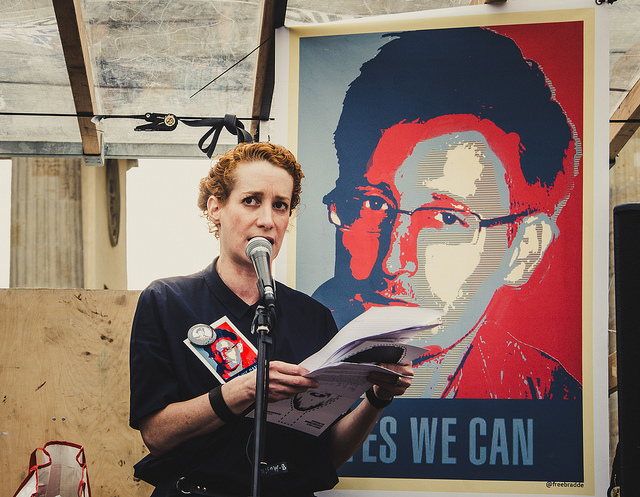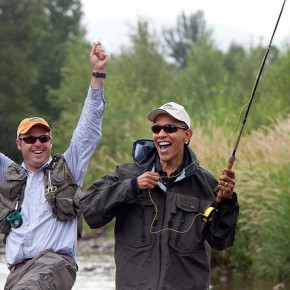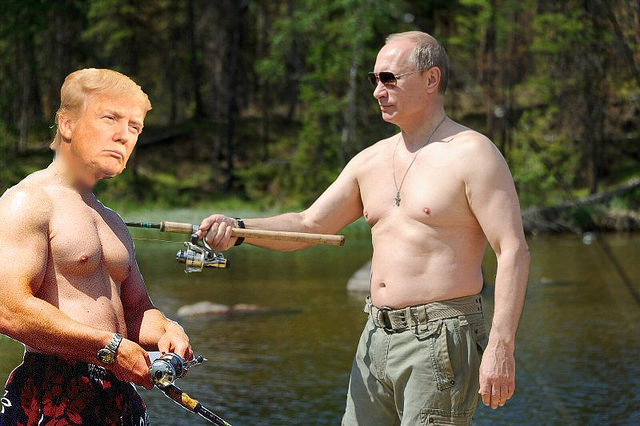If director Laura Poitras’s new film Citizenfour doesn’t make you paranoid, nothing will. By the time she has finished telling the story of Edward Snowden, how he meticulously plans to reveal the extremity of the post-9/11 surveillance state and then suffers the consequences once he sets the wheels in motion, you may be wondering whether privacy is even possible in a world where technology mediates almost every interaction.
Once it becomes clear just how far governments will go in order to spy on their own law-abiding citizens in the name of security, the very notion that one can get outside of this electronic “cage” seems increasingly absurd. At one point in the film, an expert declares that the only hope dissidents have of secrecy is to descend deep into an underground parking garage to meet, as the famous source Deep Throat insisted upon during the Watergate investigation. This may be practical advice — such structures do severely impede the radio transmissions required by mobile phones, after all — but it also feels like a confession that the only way to preserve liberty in the present is to retreat into the past.
Tellingly, Citizenfour — the title comes from the code name Snowden adopted when he first sought out Poitras’s help — ends with a perverse sequence in which investigative journalist Glenn Greenwald explains to the now-exiled systems administrator that another whistleblower has followed his brave lead. Greenwald scribbles a series of notes on paper, which the audience is mostly unable to read, and then hands them to Snowden, who reacts with a mixture of surprise and excitement. Then, in the film’s final shot, we see a large pile of those papers on a coffee table being shredded by hand, as the sound of paper ripping gradually fuses with Trent Reznor’s edgily minimalist score.
After spending almost two hours being given the impression that we are part of a growing resistance to the surveillance state, this refusal to let us in on the secret reminds us that any potentially permanent record can compromise our safety. Richard Nixon’s ill-fated decision to capture Oval Office conversations on tape inevitably come to mind. Ending Citizenfour in this manner implies that the preservation of liberty may require us to opt out of mechanical reproduction altogether. Yet, given the fact that we have just watched a film about relationships forged through e-mail, in which the contents of a surreptitiously copied digital archive are the primary subject of conversation, this seems like a strange conclusion to promote. Unless, that is, the point is to call everything we have witnessed into question.
What I mean to suggest here is that the paranoia Citizenfour inspires is so utterly corrosive that it threatens to dissolve the story’s own foundations. As the film’s opening sequence informs us, Poitras undertook the project because Snowden reached out to her specifically. We see a reproduction of an e-mail in which he argues that he didn’t select her so much as her previous work did. He notes that she has been under constant scrutiny because of the negative attention her previous documentaries attracted. He is contacting her, according to this logic, because she has already taken the risks that he now intends to take himself.
As Poitras has explained in interviews, she had already begun a film about the post-9/11 surveillance state prior to hearing from Snowden, one whose traces can still be detected in the finished product. His sudden appearance on the scene gave the project a focus. Indeed, from an artistic standpoint, his contributions were almost too good to be true. Nerdily affable and more articulate on camera than most amateurs could ever hope to be, Snowden wins us over both with the clarity of his convictions and his repeatedly stated desire not to let himself become the story. And yet, within the context of Poitras’s original project, his intrusion did precisely that.
The camera’s proximity to Snowden in the close quarters of his Hong Kong hotel room facilitates a powerful identification with him. The vast, impersonal data collection to which he draws our attention reduces people to ciphers. But he is very much an individual, setting out on his possibly quixotic but undeniably noble quest to alert us to its depravities. We may not have realized that we needed a hero to motivate our resistance to intelligence-gathering, but once we find one it is almost impossible to let him go. However it is precisely that investment in the film’s protagonist — so much easier for Western audiences to connect with than the subjects of the first two documentaries in Pointras’s post-9/11 trilogy, My Country, My Country and The Oath — that should give us pause.
If the surveillance state’s technological capabilities are as extreme as we are led to believe, how could one subcontracted employee manage to transport so much classified material out of his highly secure work environment without being detected? And how plausible is it that a system adminstrator like Snowden would have access to just about any secret material he wanted? Why couldn’t a military that prides itself on the surgical precision of its drone strikes find some way of intercepting him when he was in transit from Hong Kong to Moscow? Assuming that the material he began to share with Greenwald and Poitras was as explosive as he indicated, why wouldn’t more of an effort be made to eliminate him in the way that CIA was famous for doing throughout the Cold War?
To be sure, these are the sort of questions asked by people who are losing confidence in what they see and hear. But whereas that mode of radical skepticism is typically the province of an unhappy few, Citizenfour insidiously extends its influence. When Snowden puts a blanket over his head to type in passwords on Greenwald’s laptop, we don’t see someone who has lost his grip on reality. Rather, he seems eminently reasonable as he explains all the ways in which a person might unwittingly make the surveillance state’s task a lot easier.
If the documents Edward Snowden has made available are real, it would be almost impossible not to conclude that every bit of evidence at our disposal could be fabricated by covert operations whose sole purpose is to deceive. Do I personally think that he is a double-agent still working for the NSA? I’m not willing to go that far. What I do know, however, is that Citizenfour provides us the tools we need to be on the look out for that brand of subterfuge.
Photograph courtesy of Ekividi. Published under a Creative Commons license.





